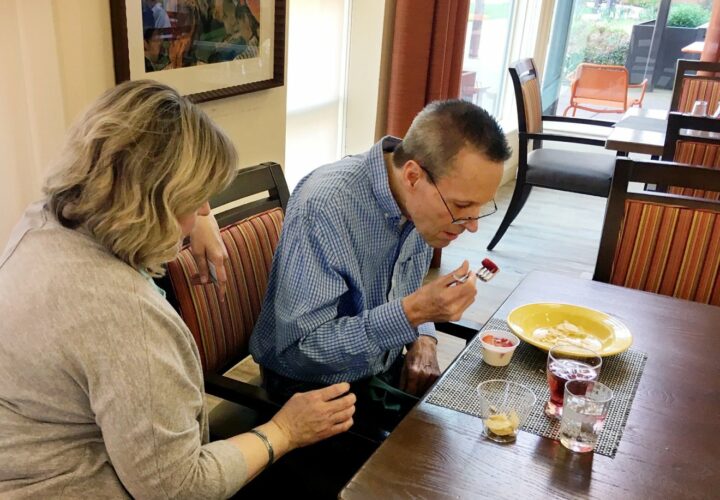Respite care: get your share. Ira G. Asherman shares some pointers on finding a caregivers' respite program near you.
If you are like me, one of the thousands of individuals caring for a loved one, then you know how draining and difficult the process can be. My wife is living with Alzheimer’s. Recognizing the pressures caregiving requires, the federal government has made money available to the states for respite care programs and as a caregiver you should explore the availability of respite care in your community.
To quote NIH “Caregiving is not easy — not for the caregiver and not for the person receiving care. The ongoing demands of taking care of someone else can strain even the most resilient person. That’s why it’s critical for caregivers to ask for help and take a break when they need it.”
For me personally, caregiving has been an immense challenge. I was not raised to be a caregiver. As a child caregiving was my mother’s responsibility and once, I got married all those caring and nurturing activities fell to my wife. I was a bystander; I supported my wife, but it was clear who was the lead, and it was not me. Now the tables have turned, and I am the primary caregiver for my wife, and learning daily what caregiving is all about and how challenging it can be. I need a break.
What is respite care?
“Respite care provides short-term relief for primary caregivers,” writes the National Institute on Aging, “giving them time to rest, travel, or spend time with other family and friends. The care may last anywhere from a few hours to several weeks at a time. Respite care can take place at home, in a health care facility, or at an adult day care center.”
“Everyone needs a break,” writes the Alzheimer’s Association. ”Respite care provides caregivers a temporary rest from caregiving, while the person living with Alzheimer’s continues to receive care in a safe environment. Using respite services can support and strengthen your ability to be a caregiver.”
There is an increasing recognition that for caregivers to be effective we need a break, we need relief, and respite is one part of that answer. Asking for respite care in no way suggests your love has diminished. Rather, I would suggest the exact opposite. It is what we all need if we are to survive and provide the care our loved ones need and require.
Respite can also take a variety of different forms. It can include activities both in your home or outside facilities.
Does your city or state have a respite care program? The quickest way to answer that question is to go to the Arch National Respite Network’s ARCH National Respite Locator. In addition to providing links to the states that provide respite programs, theARCH network site is a resource on everything respite.
The Alzheimer’s Associations Center for Dementia Respite Innovation has also posted some resources.
- If you are a veteran, you have an additional option, the Veteran-Directed Care program.
- Respite care is also available through Medicaid.
- If you live in Western New York Southeast Michigan you have a unique option which is the Exhale Grantee Partner Cohort 3 Philanthropic Initiative.
- Check with your city’s or state’s department of aging as they may have their own program.
To quote the ARCH Network “To be most effective, you should consider respite services much earlier than you think you will need them. Respite will be most helpful if you use it before you become exhausted, isolated, and overwhelmed by your responsibilities. Respite services can be beneficial, meaningful, and enjoyable to both the caregiver and the care recipient.”
Take advantage of this opportunity. Respite care will not solve all your caregiving issues, but it can make a major difference in your well-being and approach to your caregiving responsibilities. Money is available — do not fail to take your share.




